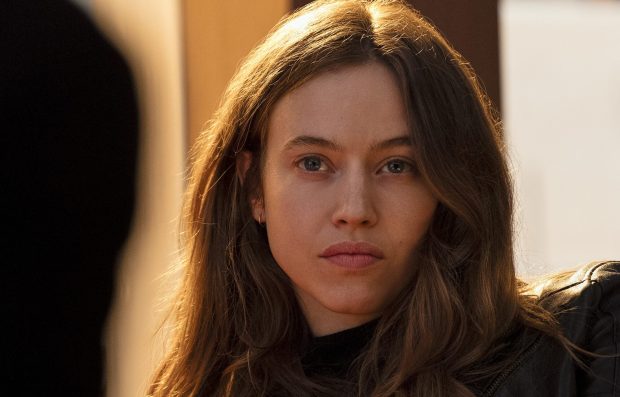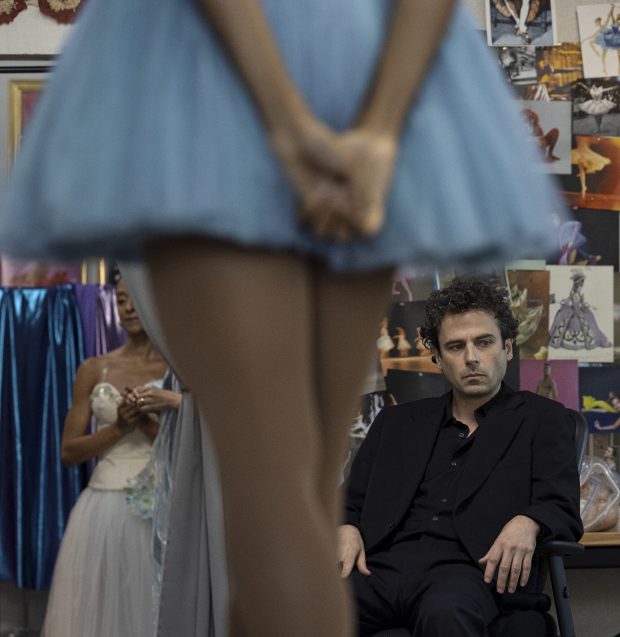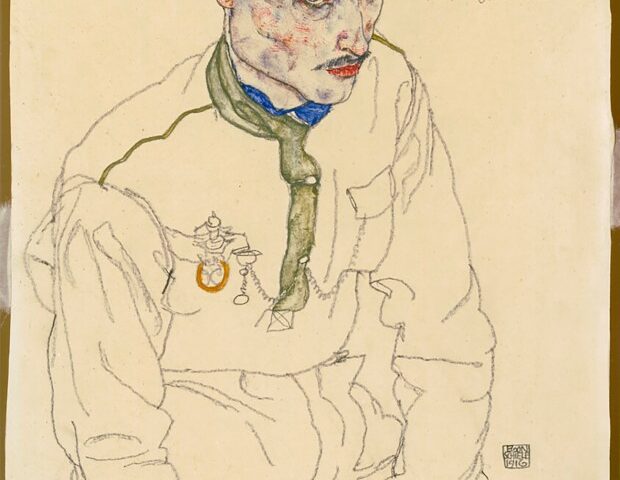In the Amazon dramedy “Étoile,” a ballet company in New York and another in Paris swap some of their talent for a season, hoping the gimmick will sell more tickets and fix some financial struggles. The eight-episode series comes from Amy Sherman-Palladino and Daniel Palladino (“Gilmore Girls,” “The Marvelous Mrs. Maisel”) and while the pair’s signature patter fuels the dialogue, this might be the least overly mannered of their shows, perhaps because “Étoile” is fundamentally a story about work — within the administrative offices as well as the dance studios of both companies — where egos and conflict abound. And it’s funny!
Jack (Luke Kirby) runs the New York ballet. Genevieve (Charlotte Gainsbourg) is his counterpart in Paris. “The audience is dead and dying. So’s the funding. I’ve got union issues,” she says, proposing the one-year exchange. At the mention of unions, he shrugs, “You’re French.” And anyway, the stunt sounds ridiculous. But it appeals to a wealthy arts patron (Simon Callow) who swoops in and informs them both: This is happening whether you like it or not. And so, the tempestuous Parisian star Cheyenne (Lou de Laâge) is sent Stateside, while Mishi (Taïs Vinolo), a dancer on the rise, and Tobias (Gideon Glick), a mercurial choreographer, relocate to France. The experiment has begun.
This isn’t the first time the Palladinos have ventured into the world of ballet. Their 2012 series “Bunheads” ran for just a single season and felt like a spiritual descendant of “Gilmore Girls,” both in how it was shot and its focus on high school-aged characters. This show (named for the French word for principal dancer) has more adult aims and is better for it. I have some criticisms, and yet I kind of love the series — it’s that kind of show. You recognize the flaws, but that doesn’t stop you from appreciating it as a whole and wanting to watch more.
Regardless of the transatlantic divide, everyone is working through failure or self-doubt, or grappling with professional forks in the road. Jack and Genevieve must juggle the business prerogatives that fund the whole thing. Heading up a ballet company is an exercise in putting out fires and not losing one’s cool — the latter of which they manage less than half the time. There’s a running joke of Jack protesting that one thing or another is out of his control and someone will ask: “Don’t you run this place?”
“Étoile” is about a very specific and insular world and it brings to mind the look and feel of movies like 1977’s “The Turning Point” or 1980’s “Fame.” At one point, the camera pans through a building filled with community dance classes of all types, and it has the wonderful cacophonous feel of fly-on-the-wall documentary footage, capturing a slice of New York that’s rarely seen on screen anymore. Another montage depicts dancers prepping their feet for pointe shoes: The tape and bandages and, perhaps unexpectedly, wrapping toes in a sanitary pad.
A veteran costumer in Paris pops up for just one scene but she’s a memorable character with a seen-it-all demeanor. When the Paris dance corps is ready to riot over their frustrations with a choreographer, they’re mollified when their boss simply changes the subject: “Who wants free cigarettes?” Ahead of a fundraiser, someone reminisces about the old days: “It used to be if you wanted to entice a dancer to a gala, you’d tuck a healthy line of blow under the salad plate.”
Major arts organizations have formidable boards of directors to contend with, and the Palladinos have an ear for the absurdity of these conference room showdowns. Jack is punchy and semi-beleaguered, an old money, Mayflower-descended nepobaby whose uniform is a black suit, black shirt and Allbirds on his feet. Genevieve is less fully formed. She is physically clumsy, sloppy about details and has a knack for saying the wrong thing at the wrong time — seeming entirely out of her depth, and yet is unaware of this fact. She wears stiletto heels but is forever taking them off because they’re so impractical, a facile detail that’s supposed to function as character development.
The show’s lesser bits require a hefty suspension of disbelief. Would switching a few dancers between companies really result in a dramatic and sustained increase in ticket sales? Would a difficult and stubborn type like Cheyenne — who is also an eco-activist in her spare time — seriously consider coming to the U.S. in this political climate? The show was written long before our current moment, but it is premiering against a real-world backdrop in which, as one recent story noted, “a wave of artists are reconsidering tours over U.S. border detention fears.”
During the run of “Bunheads,” it was mildly critiqued for featuring no Black dancers. The casting of Vinolo is seemingly a corrective, but it’s a half-measure because the show dodges any hints of the racism that actual Black dancers have talked about encountering. Vinolo is a bona fide ballet dancer in real life, by the way, which is true of some but not all in the cast. The dance doubles are named in the end credits of each episode, which is a detail I appreciate; no one here is trying to perpetrate any fictions about this kind of thing.
Sometimes French characters speak English amongst themselves, as if Amazon put a limit on the number of subtitled scenes allowed. Gainsbourg has no flair for the Palladinos’ style of comedy, and the rich benefactor is a wildly dated trope, as if we still lived in a time when the wealthy were susceptible to pangs of noblesse oblige. Tobias, the choreographer, is neurodivergent and his anxieties and inflexibility tend to be played for sardonic laughs (sometimes at the expense of creating a more nuanced character) and I’m curious what opinions will be about some of the choices the show has made in terms of how he is written and performed.
And yet “Étoile” won me over. The dance sequences are filmed so that you see the entire line of the dancers’ bodies as they move through space, unmarred by nervous editing. (The show was initially picked up by Amazon for two seasons, so a second season is on the way.) Stick around for the closing credits, which are a wonderful collage of dancers in rehearsal or casually hanging around backstage.
The series is filled with actors who are alumni of past shows from the Palladinos, including Kelly Bishop, who turns up as Jack’s mom. She is terrific and even more so because Nina Arianda has been cast as her daughter. Finally, here is an actress who believably feels like she could be Bishop’s offspring and it functions as a jolt of electricity when you realize this casting choice feels like a once-in-a-lifetime aligning of the planets.
Ultimately, so much of “Étoile” rides on de Laâge’s hilariously ferocious performance as the Parisian sent to New York against her will. When the doorman at her hotel offers to get her a cab, she bluntly scowls: “I have legs.”
To someone else, she asks: Do you know anything about ballet dancers? “We’re weird. We do weird things. We stand on our toes on purpose. Why? I don’t know. Ask Louis XIV. Our whole lives are spent in disgusting, unsanitary places. We smell. All the time.” You’re trying to scare me off, comes the reply. “No, if I was trying to scare you off, I’d show you my feet.”

“Étoile” — 3.5 stars (out of 4)
Where to watch: Amazon
Nina Metz is a Tribune critic.




